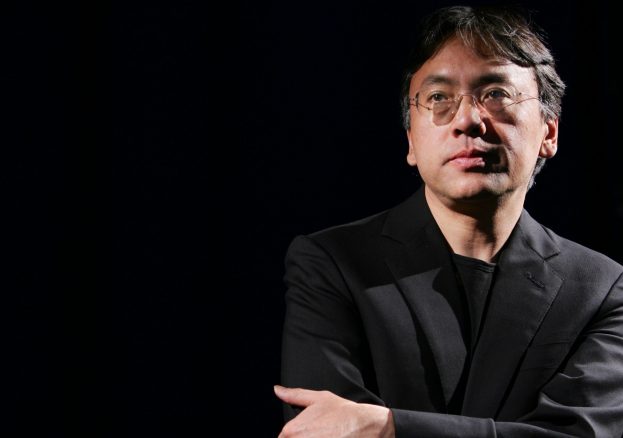
Ishiguro was awarded the Nobel Prize in Literature 2017 this October and delivered his Nobel Lecture on Thursday (7th December) at the Swedish Academy in Stockholm. It subsequently was published on Monday (11th December) as a £4.99 paperback.
In his lecture, the Nagasaki-born British writer began by exploring his relationship with Japan and his initial hesitation in writing about it, as well as his inspirations from the worlds of writing, music and film.
“We were still a few years away from the explosion of ‘multicultural’ literature in Britain,” said Ishiguro discussing his decision to write about his roots. “Salman Rushdie was an unknown with one out-of-print novel to his name. Asked to name the leading young British novelist of the day, people might have mentioned Margaret Drabble; of older writers, Iris Murdoch, Kingsley Amis, William Golding, Anthony Burgess, John Fowles. Foreigners like Gabriel García Márquez, Milan Kundera or Borges were read only in tiny numbers, their names meaningless even to keen readers.
“Such was the literary climate of the day that when I finished that first Japanese story, for all my sense of having discovered an important new direction, I began immediately to wonder if this departure shouldn’t be viewed as a self-indulgence; if I shouldn’t quickly return to more ‘normal’ subject matter. It was only after considerable hesitation I began to show the story around,” he said.
Taking stock of the “huge changes” that have taken place since, including breakthroughs in science and technology, Ishiguro went on to touch on politics, lamenting the seeming “lack [of] any progressive cause to unite us” at the moment and recent “sickening acts of terrorism” around the globe which he said “forced me to acknowledge that the unstoppable advance of liberal-humanist values I’d taken for granted since childhood may have been an illusion”.
In such times of “dangerously increasing division” in which he warned racism is “once again on the rise”, he rounded off his speech with a vote of confidence in the next generation of “talented” writers and with an appeal for the literary community to become more diverse. In particular he emphasised how important it was to remain open to “unknown literary cultures” and to different kinds of storytelling.
“I’ll have to carry on and do the best I can. Because I still believe that literature is important, and will be particularly so as we cross this difficult terrain,” said Ishiguro. “But I’ll be looking to the writers from the younger generations to inspire and lead us. This is their era, and they will have the knowledge and instinct about it that I will lack. In the worlds of books, cinema, TV and theatre I see today adventurous, exciting talents: women and men in their forties, thirties and twenties. So I am optimistic. Why shouldn’t I be?
“Let me finish by making an appeal – if you like, my Nobel appeal. It’s hard to put the whole world to rights, but let us at least think about how we can prepare our own small corner of it, this corner of ‘literature’, where we read, write, publish, recommend, denounce and give awards to books. If we are to play an important role in this uncertain future, if we are to get the best from the writers of today and tomorrow, I believe we must become more diverse.
“I mean this in two particular senses. Firstly, we must widen our common literary world to include many more voices from beyond our comfort zones of the elite first world cultures. We must search more energetically to discover the gems from what remain today unknown literary cultures, whether the writers live in far away countries or within our own communities. Second: we must take great care not to set too narrowly or conservatively our definitions of what constitutes good literature. The next generation will come with all sorts of new, sometimes bewildering ways to tell important and wonderful stories. We must keep our minds open to them, especially regarding genre and form, so that we can nurture and celebrate the best of them.
“In a time of dangerously increasing division, we must listen. Good writing and good reading will break down barriers. We may even find a new idea, a great humane vision, around which to rally.”
Ishiguro has authored eight works of fiction (two of which, The Remains of the Day and Never Let Me Go, were made into films) that have been translated into over 50 languages.
